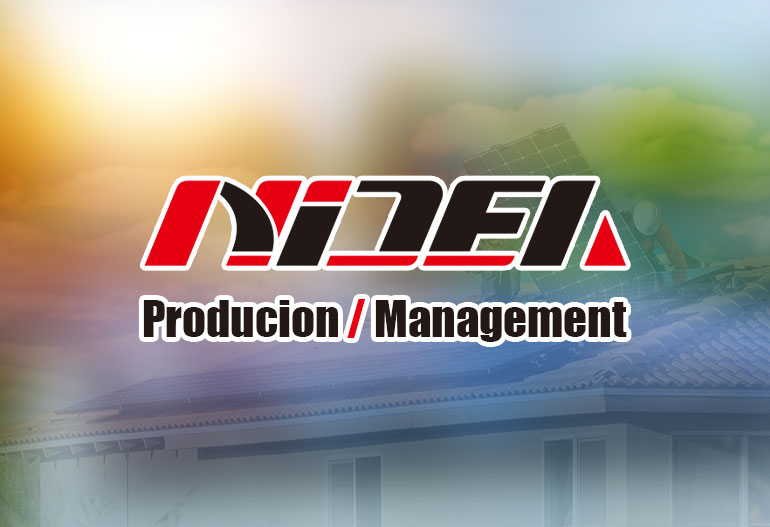Development Opportunities of Off - Grid Solar Inverters in the Age of Artificial Intelligence
Abstract
This article explores the development opportunities of off - grid solar inverters in the era of artificial intelligence (AI). With the rapid development of AI technology, off - grid solar inverters, as key components of off - grid solar power systems, can leverage AI to achieve significant improvements in performance, efficiency, and functionality. By analyzing the application scenarios and potential benefits of AI in off - grid solar inverters, this paper aims to provide insights for industry participants, promoting the innovation and development of off - grid solar power systems in the AI - driven context.
1. Introduction
1.1 The Role of Off - Grid Solar Inverters
Off - grid solar inverters are crucial elements in off - grid solar power systems. They convert the direct current (DC) generated by solar panels into alternating current (AC), enabling the operation of various electrical appliances and devices in areas without grid connection, such as remote rural regions, isolated islands, and during outdoor activities. These inverters not only play a vital role in providing reliable power supply but also contribute to the global effort of promoting renewable energy and reducing carbon emissions.
1.2 The Rise of Artificial Intelligence and Its Impact on Industries
Artificial intelligence has emerged as a transformative force in various industries. Technologies such as machine learning, deep learning, and neural networks are being widely applied to optimize processes, enhance decision - making, and improve product performance. In the energy sector, AI is increasingly being used to manage power grids, predict energy consumption, and optimize renewable energy generation. The integration of AI with off - grid solar inverters presents new possibilities for improving the efficiency and functionality of off - grid solar power systems, thereby creating significant development opportunities.
2. AI - Enabled Smart Control and Optimization
2.1 Advanced Maximum Power Point Tracking (MPPT)
One of the primary functions of off - grid solar inverters is to perform Maximum Power Point Tracking (MPPT) to extract the maximum power from solar panels under different environmental conditions. In the age of AI, traditional MPPT algorithms can be enhanced with machine learning techniques. Neural network - based MPPT algorithms, for example, can analyze a vast amount of historical data on solar irradiance, temperature, and power output. By continuously learning from this data, these algorithms can more accurately predict the maximum power point of solar panels in real - time, even in complex and variable conditions. Compared with traditional MPPT methods, AI - based MPPT can increase the power generation efficiency of off - grid solar systems by 10% - 15%, maximizing the utilization of solar energy resources.
2.2 Adaptive Control for Dynamic Loads
Off - grid solar power systems often face dynamic load changes, as the power consumption of electrical devices can vary significantly throughout the day. AI - enabled off - grid solar inverters can adapt to these changes more effectively. Through real - time monitoring of load characteristics and using machine learning algorithms, the inverters can automatically adjust their output voltage, frequency, and power to match the load requirements. For instance, when a high - power electrical appliance, such as an air conditioner, is turned on, the AI - controlled inverter can quickly increase its power output while maintaining stable operation, ensuring that all connected devices work properly without causing system failures or inefficiencies.
3. Predictive Maintenance and Fault Diagnosis
3.1 Sensor - Based Data Collection and Analysis
Off - grid solar inverters are equipped with various sensors to monitor parameters such as voltage, current, temperature, and humidity. In the AI era, the data collected by these sensors can be analyzed more comprehensively. Machine learning algorithms can process large - scale sensor data in real - time to identify patterns and anomalies. For example, if the temperature of an inverter component is increasing steadily over time, the AI system can detect this trend and predict potential component failures before they occur. This predictive ability allows maintenance personnel to take proactive measures, such as replacing the faulty component in advance, reducing system downtime and maintenance costs.
3.2 Fault Diagnosis and Root Cause Analysis
When a fault occurs in an off - grid solar inverter, AI - based fault diagnosis systems can quickly identify the root cause. Deep learning algorithms can analyze multiple factors simultaneously, including sensor data, historical fault records, and operating conditions. By comparing the current fault situation with a vast database of known faults, the system can accurately determine the nature and location of the fault. For example, if there is an abnormal power output, the AI system can analyze whether it is caused by a problem with the solar panels, the inverter's internal circuits, or issues with the load connection. This detailed fault diagnosis not only helps in prompt repair but also provides valuable information for improving the design and reliability of future inverters.
4. Intelligent Energy Management
4.1 Load Prioritization and Power Allocation
In off - grid solar power systems, energy resources are often limited. AI - enabled off - grid solar inverters can implement intelligent energy management strategies. By communicating with connected electrical devices and understanding their power requirements and usage patterns, the inverters can prioritize loads. For example, during periods of low solar power generation or limited battery capacity, the inverter can ensure that essential loads, such as lighting, medical equipment in rural clinics, or communication devices, receive sufficient power first, while non - essential loads, like electric heaters or entertainment systems, may be temporarily shut down or operate at reduced power levels. This intelligent power allocation maximizes the effective use of available energy and ensures the basic needs of users are met.
4.2 Integration with Energy Storage Systems
Many off - grid solar power systems are integrated with energy storage systems, such as batteries. AI can optimize the interaction between off - grid solar inverters and energy storage systems. Machine learning algorithms can analyze factors such as solar power generation forecasts, historical load data, and battery state - of - charge to determine the optimal charging and discharging strategies. For example, when the forecast indicates that there will be a period of low solar irradiance in the coming days, the AI system can adjust the charging and discharging of the battery to ensure that there is enough stored energy to meet the load demand during that period. This integration and optimization enhance the stability and reliability of off - grid solar power systems, making them more self - sufficient and less dependent on external energy sources.
5. New Application Scenarios and Market Expansion
5.1 Remote and Off - Grid IoT Applications
The Internet of Things (IoT) is expanding rapidly, and off - grid areas also have a growing demand for IoT devices. AI - enhanced off - grid solar inverters can power and manage a wide range of off - grid IoT applications, such as environmental monitoring sensors in remote forests, wildlife tracking devices, and smart irrigation systems in rural farms. These inverters can ensure stable power supply to IoT devices while using AI to optimize energy consumption based on the data collection and operation schedules of the devices. This opens up new market opportunities for off - grid solar inverters in the IoT field, contributing to the growth of both the renewable energy and IoT industries.
5.2 Disaster Relief and Emergency Power Supply
In disaster - stricken areas where the power grid is often damaged, off - grid solar power systems with AI - enabled inverters can play a crucial role. AI can help these systems quickly adapt to the complex and changing power demands in emergency situations. For example, it can prioritize power supply for emergency medical facilities, communication centers, and water pumping stations. Additionally, AI - based fault diagnosis can ensure the reliable operation of the inverters, minimizing the risk of power outages during critical relief efforts. The ability to provide intelligent and reliable off - grid power in disaster - relief scenarios expands the application scope of off - grid solar inverters and increases their social value.
6. Challenges and Countermeasures
6.1 Technical Challenges
Integrating AI into off - grid solar inverters faces several technical challenges. Firstly, the limited computing resources of inverters may restrict the implementation of complex AI algorithms. To address this, researchers are developing lightweight AI models and edge - computing techniques that can run efficiently on the hardware of off - grid solar inverters. Secondly, ensuring the security and privacy of data collected by inverters is crucial. As AI systems rely on data for learning and decision - making, measures such as data encryption, secure communication protocols, and access control need to be implemented to protect user data and prevent potential cyberattacks.
6.2 Cost and Adoption Challenges
The addition of AI functionality to off - grid solar inverters may increase their production costs, which could be a barrier to market adoption, especially in price - sensitive markets, such as some developing regions. To overcome this, economies of scale need to be achieved through mass production. Moreover, governments and organizations can provide incentives, such as subsidies and tax breaks, to encourage the adoption of AI - enabled off - grid solar inverters. At the same time, manufacturers should focus on promoting the long - term benefits of these advanced inverters, such as improved energy efficiency and reduced maintenance costs, to convince customers of their value.
7. Conclusion
In the age of artificial intelligence, off - grid solar inverters have numerous development opportunities. AI can significantly enhance the performance, efficiency, and functionality of off - grid solar inverters through smart control, predictive maintenance, intelligent energy management, and the exploration of new application scenarios. Although there are challenges in terms of technology, cost, and adoption, with continuous innovation, cooperation among industries, and supportive policies, off - grid solar inverters are expected to play an even more important role in the future of renewable energy, contributing to a more sustainable and intelligent energy ecosystem.
Share This Article

